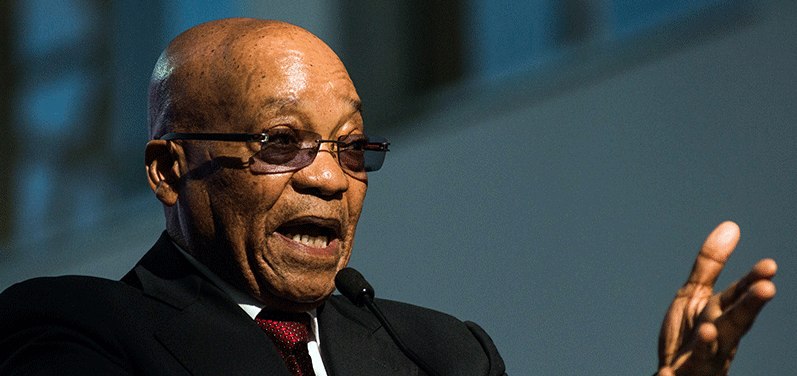Zuma survives
August 9, 2017 | Expert Insights

Jacob Zuma, the South African President, has survived a vote of no confidence in the Parliament through a relatively narrow margin.
This was the 6th vote of no-confidence that has been held since he became President in 2009.
Background
Jacob Gedleyihlekisa Zuma became the President after his party, African National Congress (ANC) claimed victory in the 2009 general election. He was re-elected in 2014. A controversial figure, he has dealt with multiple charges of corruption and bribery through his tenure in politics. In 2009, shortly before he was elected President, 783 corruption charges were abruptly dropped. The charges are connected to an arms deal that was signed when Zuma was the Deputy President in 1999. There is a court challenge under way to reinstate those charges.
However, it was in 2016 when he faced his greatest challenge to his Presidency yet. Leaked emails and documents seemed to highlight improper dealings between Indian-born South African business family, the Guptas and the government. The family has landed a number of lucrative government deals for decades. The Gupta family has interests in computers, mining, air travel, energy, technology and media. They also enjoy close ties with the President and his family.
Analysis
The latest no-confidence vote was held on August 8, 2017. For the motion to pass, opposition needed 201 votes from 400 seats in the Parliament. It was a secret ballot to ensure those within ANC could vote against Zuma without suffering repercussions. Ultimately, Zuma was able to secure 199 votes to opposition’s 177 votes. There were 9 abstentions. The ANC holds 246 parliamentary seats. The vote showed that at least 26 ANC MPs broke ranks to vote with the opposition.
After the results of the vote were announced, Zuma expressed his gratitude to his supporters. He said, “I’ve just come to say thank you to all of you. Those comrades who are in parliament needed the support from the membership. You came in your numbers to demonstrate that the ANC is there, is powerful, is big. It is difficult to defeat the ANC, but you can try.”
There have been growing calls within the party asking Zuma to step down. Zuma is likely to be in power until December 2019 general elections.
Assessment
Our assessment is that as controversy continues to cloud Zuma’s mandate, there is likely to be more infighting and factions within ANC. The political party has held power in South Africa since the abolishment of apartheid.








Comments